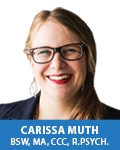 Important Notice:
Important Notice:
Online registration is now CLOSED for this conference. You can arrive up to one hour early to register at the door.
Presented by Gordon Neufeld, Ph.D. and Caroline Buzanko, Ph.D., R. Psych and Carissa Muth, Psy.D., CCC, R.Psych and Pamela Malkoff Hayes, MFT, LMHC, LPC, ATR-BC and Jennifer Patterson, Psy.D., LCPC
Monday, November 25, 2024 – Wednesday, November 27, 2024 | Richmond, bc
Online registration is now CLOSED for this conference. You can arrive up to one hour early to register at the door.
Monday, November 25, 2024 – Wednesday, November 27, 2024
8:30am – 4:00pm
Executive Hotel Vancouver Airport
7311 Westminster Hwy
Richmond, BC V6X 1A3
phone: 604.278.5555
Registration on this page is for live in-person attendance only. To attend virtually please register here: https://webinars.jackhirose.com/product/many-pathways-to-healing/
Live In-Person Conference
Please note, in-person registration does not include access to the live stream or recorded footage.
Live Stream from Home

Limited quantities are available. Must pre-buy during registration, not available at the door. Individuals with strict dietary needs or preferences can pre-order lunch off the menu through the hotel restaurant. Lunch buffets are non-refundable, no refund or credit will be granted under any circumstance.
Clinical Professionals: All mental health professionals including, but not limited to Clinical Counsellors, Psychologists, Psychotherapists, Social Workers, Nurses, Occupational Therapists, Hospice and Palliative Care Workers, Youth Workers, Mental Health Workers, Addiction Specialists, Marital & Family Therapists, Speech Language Pathologists, Vocational Rehabilitation Consultants, School Counsellors, Behaviour Specialists, Rehabilitation Consultants, Geriatric Specialists, and all professionals looking to enhance their therapeutic skills.
8:30am - 11:45am November 25, 2024
COURSE DESCRIPTION
What is it that makes life worth living? People seek help because they feel stuck. Stuck by their symptoms, stuck by tough relationships, or stuck by seemingly impossible situations. While it is often easier as professionals to work with those in the “action” phase who seem ready to change, most often the individuals that come for help find themselves at a different stage of understanding what needs to change in their lives. Sometimes this results in working with those that seem to repeat the same negative choices or thought patterns over and over again. These individuals are prone to be labelled as non-compliant or not motivated. But what if it was something else? Rooted in humanistic and Rogerian values, in this 6-hour workshop, Dr. Carissa Muth will provide participants with a strength based, meaning centred framework for understanding and working with a myriad of clients, including those struggling with trauma, addiction, anxiety, and depression who are seemingly treatment resistant. Integrating interventions from CBT, DBT, and Narrative Therapy, Dr. Muth will provide specific interventions that participants can immediately utilize. As psychologist Rollo May states, “There is no such thing as truth or reality for a living human being except as he participates in it, is conscious of it, has some relationship to it.” For those struggling with trauma, depression, anxiety, or addictions, this question of “why?” is at the core of the pursuit of recovery.
LEARNING OBJECTIVES

Dr. Carissa Muth is a registered psychologist in Alberta and British Columbia and the Clinical Director at the Sunshine Coast Health Centre and Georgia Strait Women’s Clinic. She holds Doctorate of Psychology, Master of Arts in Counselling, and Bachelor of…
8:30am - 11:45am November 25, 2024
Fresh insights from the sciences of development, emotion and attachment shed light on the hidden wisdom of the stress response, the essence of trauma, and the pivotal role of both attachment and emotion in etiology and recovery. What is also revealed in putting the pieces together is a common denominator that cuts across syndromes and diagnoses and informs intervention. While the material is presented with clinicians in mind, this model of stress and trauma applies across all ages and venues, including private practice, treatment programs, as well as personal healing and recovery. This model also has significant implications for the prevention, recognition and treatment of distressed children and youth, whether via the school, the family, special programs or direct treatment.
LEARNING OBJECTIVES

Dr. Gordon Neufeld is a Vancouver-based developmental psychologist with over 50 years of experience with children and youth and those responsible for them. A foremost authority on child development, Dr. Neufeld is an international speaker, a bestselling author (Hold On To…
More information: www.neufeldinstitute.org
12:45pm - 4:00pm November 25, 2024
COURSE DESCRIPTION
What is it that makes life worth living? People seek help because they feel stuck. Stuck by their symptoms, stuck by tough relationships, or stuck by seemingly impossible situations. While it is often easier as professionals to work with those in the “action” phase who seem ready to change, most often the individuals that come for help find themselves at a different stage of understanding what needs to change in their lives. Sometimes this results in working with those that seem to repeat the same negative choices or thought patterns over and over again. These individuals are prone to be labelled as non-compliant or not motivated. But what if it was something else? Rooted in humanistic and Rogerian values, in this 6-hour workshop, Dr. Carissa Muth will provide participants with a strength based, meaning centred framework for understanding and working with a myriad of clients, including those struggling with trauma, addiction, anxiety, and depression who are seemingly treatment resistant. Integrating interventions from CBT, DBT, and Narrative Therapy, Dr. Muth will provide specific interventions that participants can immediately utilize. As psychologist Rollo May states, “There is no such thing as truth or reality for a living human being except as he participates in it, is conscious of it, has some relationship to it.” For those struggling with trauma, depression, anxiety, or addictions, this question of “why?” is at the core of the pursuit of recovery.
LEARNING OBJECTIVES
12:45pm - 4:00pm November 25, 2024
Fresh insights from the sciences of development, emotion and attachment shed light on the hidden wisdom of the stress response, the essence of trauma, and the pivotal role of both attachment and emotion in etiology and recovery. What is also revealed in putting the pieces together is a common denominator that cuts across syndromes and diagnoses and informs intervention. While the material is presented with clinicians in mind, this model of stress and trauma applies across all ages and venues, including private practice, treatment programs, as well as personal healing and recovery. This model also has significant implications for the prevention, recognition and treatment of distressed children and youth, whether via the school, the family, special programs or direct treatment.
LEARNING OBJECTIVES
8:30am - 11:45am November 26, 2024
COURSE DESCRIPTION
Despite all the resources and training programs out there, in our post-pandemic world, anxiety is more pervasive than ever before, and people are finding it harder and harder to cope. Unfortunately, when they seek support, many anxious clients do not receive the right kind of help and some professionals even make anxiety worse.
In this workshop, you will discover evidence-based interventions and practical strategies to boost anxious client’s internal locus of control and master anxiety. Designed specifically for mental health professionals, this workshop goes beyond the basics and offers specialized knowledge and skills to optimize outcomes with anxious clients. Using a transdiagnostic approach, you’ll leave with a toolbox filled with concrete strategies that you can use immediately, no matter the nature or severity of your clients’ anxiety.
LEARNING OBJECTIVES

Caroline Buzanko, Ph.D., R. Psych, is a psychologist. Mother. Professor. International Speaker. Yoda of Anxiety. ADHD Superhero. And Changer of Lives. With nearly three decades of experience, she is a recognized expert in resilience and the social, emotional, and behavioural well-being…
8:30am - 11:45am November 26, 2024
COURSE DESCRIPTION
Join us in our upcoming workshop where you will expand your therapeutic toolkit with innovative art interventions designed to counter catastrophizing thoughts and negative self-talk. Discover how evidence-based treatments can empower your students to cultivate resilience, tolerate frustration, and navigate discomfort without resorting to immediate self-medication. Through this seminar, you will learn a repertoire of art interventions that facilitate emotional transformation, trauma processing, problem-solving, perspective shifting, and progress towards acceptance and gratitude.
Don’t miss this opportunity to enrich your therapeutic practice and empower your students through the transformative potential of art therapy. Join us and embark on a journey towards fostering emotional resilience and growth in your students.

Pamela Malkoff Hayes, MFT, LMHC, LPC, ATR-BC is a Licensed Marriage and Family Therapist (MFT) in the states of California, Florida, Georgia, and Rhode Island. She is also a Registered and Board Certified Art Therapist with the American Art Therapy…
12:45pm - 4:00pm November 26, 2024
COURSE DESCRIPTION
Despite all the resources and training programs out there, in our post-pandemic world, anxiety is more pervasive than ever before, and people are finding it harder and harder to cope. Unfortunately, when they seek support, many anxious clients do not receive the right kind of help and some professionals even make anxiety worse.
In this workshop, you will discover evidence-based interventions and practical strategies to boost anxious client’s internal locus of control and master anxiety. Designed specifically for mental health professionals, this workshop goes beyond the basics and offers specialized knowledge and skills to optimize outcomes with anxious clients. Using a transdiagnostic approach, you’ll leave with a toolbox filled with concrete strategies that you can use immediately, no matter the nature or severity of your clients’ anxiety.
LEARNING OBJECTIVES
12:45pm - 4:00pm November 26, 2024
COURSE DESCRIPTION
Join us in our upcoming workshop where you will expand your therapeutic toolkit with innovative art interventions designed to counter catastrophizing thoughts and negative self-talk. Discover how evidence-based treatments can empower your students to cultivate resilience, tolerate frustration, and navigate discomfort without resorting to immediate self-medication. Through this seminar, you will learn a repertoire of art interventions that facilitate emotional transformation, trauma processing, problem-solving, perspective shifting, and progress towards acceptance and gratitude.
Don’t miss this opportunity to enrich your therapeutic practice and empower your students through the transformative potential of art therapy. Join us and embark on a journey towards fostering emotional resilience and growth in your students.
8:30am - 11:45am November 27, 2024
COURSE DESCRIPTION
In this foundational course, participants will embark on a transformative journey into Acceptance and Commitment Therapy (ACT). ACT is a third-wave cognitive-behavioral therapy that transcends traditional approaches by seamlessly weaving together the processes of acceptance, mindfulness, and behavior change principles. Through experiential learning and evidence-based techniques, participants will cultivate a profound understanding of ACT and its practical applications.
Join ACT expert and International trainer Jennifer Patterson, Psy.D., LCPC, for this workshop, where you will develop efficient, evidence-based skills, case conceptualization techniques, and powerful strategies that will improve outcomes for the following:
LEARNING OBJECTIVES
OUTLINE
The ACT Model
Limitations of the Research and Potential Risks
Acceptance
Defusion
Perspective-Taking
Mindfulness
Values Work
Committed Action
Pulling It All Together
Incorporate ACT into Your Own Approach

Jennifer Patterson, Psy.D., LCPC, aims to offer evidence-based psychotherapy to help others live full and abundant lives. She is the founder of JPI Psychological Solutions in Chicago, Illinois, and specializes in treating obsessive-compulsive behaviors, anxiety, and depression. At JPI, she…
12:45pm - 4:00pm November 27, 2024
COURSE DESCRIPTION
In this foundational course, participants will embark on a transformative journey into Acceptance and Commitment Therapy (ACT). ACT is a third-wave cognitive-behavioral therapy that transcends traditional approaches by seamlessly weaving together the processes of acceptance, mindfulness, and behavior change principles. Through experiential learning and evidence-based techniques, participants will cultivate a profound understanding of ACT and its practical applications.
Join ACT expert and International trainer Jennifer Patterson, Psy.D., LCPC, for this workshop, where you will develop efficient, evidence-based skills, case conceptualization techniques, and powerful strategies that will improve outcomes for the following:
LEARNING OBJECTIVES
OUTLINE
The ACT Model
Limitations of the Research and Potential Risks
Acceptance
Defusion
Perspective-Taking
Mindfulness
Values Work
Committed Action
Pulling It All Together
Incorporate ACT into Your Own Approach
| Registration | Super Early Bird Fee | Early Bird Fee | Regular Fee |
|---|---|---|---|
| Individual 1 Day Enrollment | -- | $289.00 | $309.00 |
| Individual 2 Day Enrollment | -- | $489.00 | $509.00 |
| Individual 3 Day Enrollment | -- | $699.00 | $719.00 |
| Group 3-7 | -- | $659.00 | $679.00 |
| Group 8-14 | -- | $639.00 | $659.00 |
| Group 15+ | -- | $619.00 | $639.00 |
| Full-Time Student | -- | $619.00 | $639.00 |
All fees are per person and in Canadian Dollars ($CAD)
Fees do not include applicable taxes (5% GST).
Early bird cutoff date: November 11, 2024
The early bird date has passed. Regular rates apply.
Please review our Registration Terms and Conditions for information on our cancellation policy, payment policies, rebates, and more. You must agree to our Terms and Conditions to register for a workshop or conference.
All brochures and forms are provided in .PDF format.
If you are unable to open our files, we recommend downloading Adobe Reader for free.
7311 Westminster Hwy
Richmond, BC V6X 1A3
phone: 604.278.5555
website: www.executivehotels.net/vancouver-airport-hotel/
Our rates:
Please state you would like to book under the “Jack Hirose” block when booking your room to receive our group room rate.
Courtyard Standard Room – $179.00 plus tax
Courtyard Junior suite – $199.00 plus tax
Plaza Room – $209.00 plus tax
One-bedroom Condo – $259.00 plus tax
Guest bookings include:
Please note, room reservations are subject to availability
Jack Hirose & Associates is approved by the Canadian Psychological Association to offer continuing education for psychologists. Jack Hirose & Associates maintains responsibility for the program.
† The Alberta College of Social Workers (ACSW) and the Newfoundland and Labrador Association of Social Workers (NLASW) accept CPA-approved CEUs.
* Participants will receive a certificate of completion after every workshop. Workshops are pre-approved for 5.5 or 6 credits per day unless otherwise specified.
Please check back closer to the conference date for more information.
There are no related events at this time.